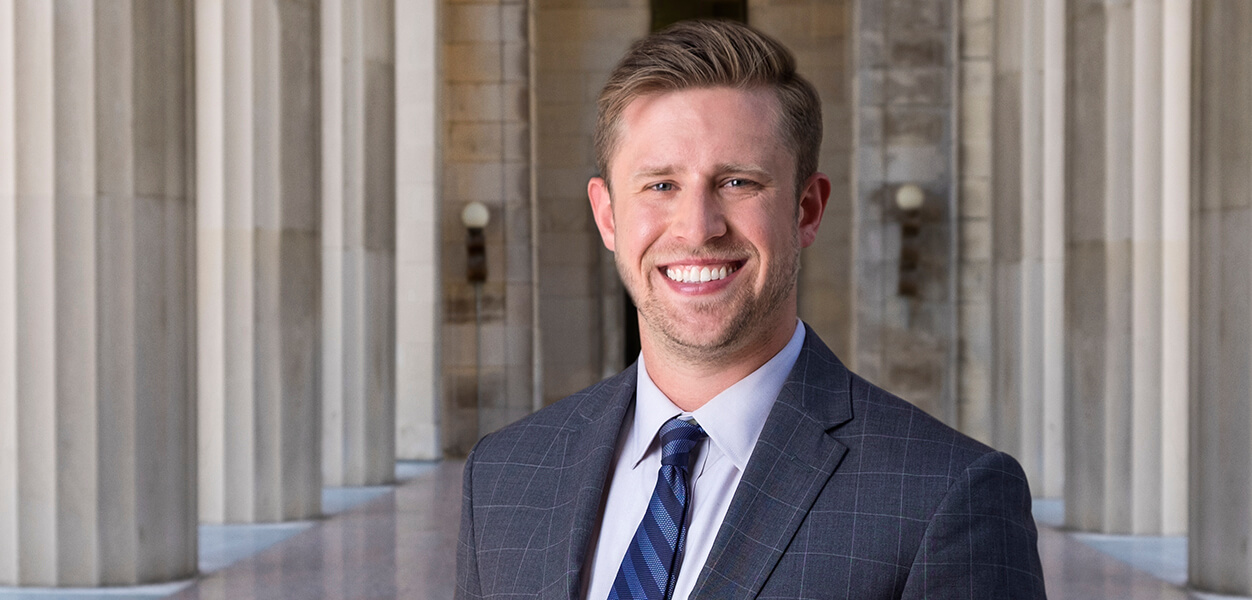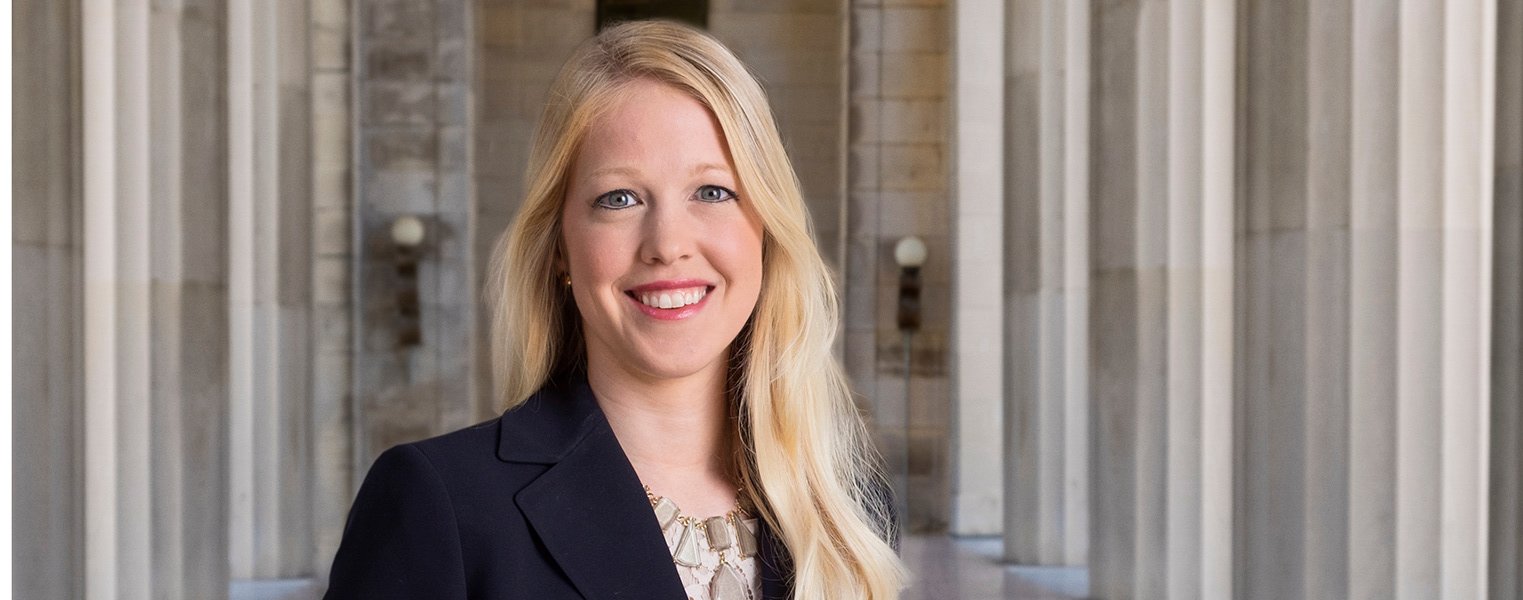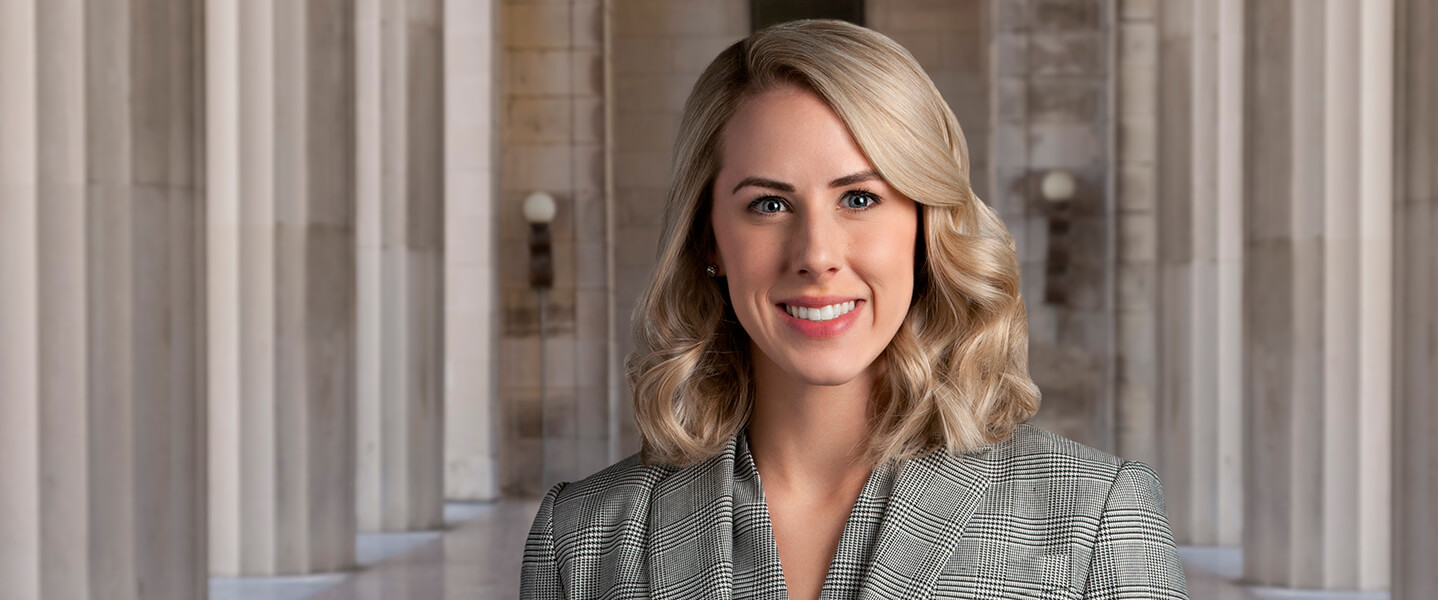One of the main goals of our department is to promote business recruitment and expansions to create high quality jobs in Tennessee. When it comes to our recruitment efforts, our Business Development team takes the lead. Oftentimes, one of TNECD’s six directors of business development is the first person a company comes in contact with at the start of the recruitment process. Each director of business development serves as a vital resource for companies, providing them with information ranging from Tennessee’s business advantages to workforce development to grants to site development and much more.
“Day in and day out I get to work with companies across the globe that are looking to make their next location decision, and I get to do this all for the purpose of creating new, high-quality jobs for the people of this great state. That’s incredibly rewarding.”
Our directors of business development are in a unique position. They help each business find the best location in Tennessee — one that fits a company’s needs and positions it for growth. Along with local communities and other partners, TNECD’s directors of business development are key players for business recruitment and job growth in Tennessee.
We sat down with three of the team members to get a better idea of what it’s like to work with prospect companies every day and what they’ve learned from each project.
What are the top three things companies look for during the recruitment process?
- Lyndi Berrones: Every project is different, with different needs and different weights assigned to factors driving a location decision. However, if I were to boil it down the top three things most companies look for are a skilled workforce, available real estate options and a business-friendly climate, which includes everything from the tax environment to the cost of living. I believe these three things are at the heart of economic development; however, a couple of things that I am seeing play a larger role are logistics costs and perhaps something that’s a little harder to quantify on a spreadsheet – a sense of place.
Companies nowadays aren’t locating in a particular area because they are selling their products nearby. Instead, companies are choosing places where they can cost-effectively receive raw materials and then cost-effectively sell their finished goods across the U.S. and around the globe. Shipping and logistics costs are now playing a much more important role in the decision-making process. How consumers purchase goods and services is definitely contributing to a changing landscape as well.
Finally, “a sense of place” relates to a company’s comfort level as it pertains to a particular area. The warmth of the community, the welcoming attitude of the locals and if a company feels like they can fit in are all things that shouldn’t be taken for granted. I don’t think a sense of place can get a community on a shortlist without having all of the other factors such as workforce, sites and low taxes.; however, I do believe that it is often what seals the deal once a list of top sites has been determined.

- Kirby Lewis: Location is key. Once a company tells us what its needs are, we find sites throughout the state that would be best suited to fulfill those needs and narrow it down from there. It’s a big misconception that we select where a company locates. Companies choose where to go based on the community and site that is the best fit for them.
“More often than not, companies don’t just want to come into your community and employ people. They want to be a member of the community and to invest their time and money back into the community.”
Another key component in the conversation is workforce. Before a company makes its decision, whether it’s Tennessee or another state, they have to know that the workforce will be able to support its needs to produce exceptional goods and services. It’s a huge advantage to have programs like Tennessee Promise and Tennessee Reconnect that show our state’s commitment to education and workforce alignment. Governor Lee’s focus on technical and vocational education reinforces that commitment even further.
The final thing I’ve seen more and more lately is that companies are looking to develop partnerships with the communities. More often than not, companies don’t just want to come into your community and employ people. They want to be a member of the community and to invest their time and money back into the community. Making companies feel like they are a partner and not just a recruit is one of the best things an economic development professional can do to increase their chances of locating a project.
- Meryl Harris: With a high demand for work in the market right now, one of the main things I look forward to marketing are programs like the Future Workforce Initiative and Drive to 55. Governor Lee’s focus on education and training Tennesseans is a wonderful asset for companies expanding or relocating to Tennessee.
Two other differentiators for Tennessee that I look forward to showcasing are the quality of life in our state and the expansion and growth that is occurring in Tennessee’s rural communities. Although Nashville has been in the spotlight for the past couple of years, this attention is drawing more companies to look and expand throughout Tennessee.

What’s the most interesting thing you’ve come across when working with prospect companies?
“What I enjoy most about this job is being able to portray to prospective companies why Tennessee is the place to be and why I have lived here my whole life. If I can do that effectively and help Tennesseans enjoy a better way of life through that recruitment, then Tennessee is better for it and so is each community.”
- Lyndi Berrones: I think we often talk about companies like they are some sort of inanimate object, but companies are people. Companies are a reflection of the individual personalities and mindsets of their employees. Being very much a people person, I love meeting new people and learning what makes them tick, and I think this is pretty important in this line of work. What’s also interesting is realizing that at the end of the day people are more similar than we give them credit for regardless of their background, birthplace or life experiences. People want to feel like they are a part of something, they want to succeed and they want to have a good time.It has been funny to hear from two different prospects recently, one Canadian and one German, that Tennessee reminds them of home. Both prospects talked about growing up on farms, listening to country music and ‘kids these days’ driving around in big trucks. They talked about warm hospitality and making people feel welcome, about family and being proud of where you come from. I was fortunate to travel to Canada to meet with one of these prospects last year and I was surprised at just how much of this was true. In fact, there were times when we were driving down the road or sharing a meal where if I didn’t think about it, I would have thought we were in Tennessee. Despite the accents and language differences of people around the world, we are all striving for similar things.
- Kirby Lewis: One of the most interesting things I’ve come across when working with prospect companies actually comes for our local economic developers across the state. I am continuously inspired by their dedication to their communities and to this profession.One of the first projects I ever got to help on was a Japanese company who, due to their schedule, visited the State of Tennessee on every federal holiday for one year. The local economic developer of that community never batted an eye at those visits – she gave up some of her vacations and time with family to make sure that the client got what they needed. The project landed, and the company representatives never stopped commenting on the dedication that the economic developer showed to their company. We have some of the best on our team and that really translates when companies come to visit. I think it’s a big key to our success.
- Meryl Harris: As one of the newest directors of business development, each project I have been included in has been new and different from the last. No projects are the same and you have to be willing to adapt to make each person and company feel welcome.

What do you like the most about your job?
- Lyndi Berrones: I believe economic development is a secret world that a lot of people don’t realize exists and to be honest, I may – or may not –prefer it to stay that way so that it doesn’t become one of the most highly sought-after career fields out there.For me, economic development blends together two of my passions that I thought couldn’t overlap in a single job – international business and giving back to your community. Throughout college and graduate school, I studied the internationalization strategies of multinational companies, basically how large companies decide what country to expand into next. However, I was also very interested in the nonprofit sector and specifically organizations that worked to improve a community or improve the lives of its residents. Unfortunately, the nonprofit world and the hardcore business world don’t often intersect, and it wasn’t until I stumbled across economic development many years ago in Miami that I realized this field of work combines precisely those things that energize me.Day in and day out I get to work with companies across the globe that are looking to make their next location decision, and I get to do this all for the purpose of creating new, high-quality jobs for the people of this great state. That’s incredibly rewarding.
- Kirby Lewis: As a native West Tennessean, I enjoy being able to get back to my neck of the woods and to other parts of the state that I haven’t seen yet. I take great pride in getting to show off my home state to companies that are considering Tennessee for their newest operations. Tennessee has so many advantages from its business-friendly environment to its quality of life that I feel it has something to offer every company. I love being able to tell the Tennessee story every day and knowing that at the end of the day, I’m working hard to make sure that the people of Tennessee have high quality jobs that allow them to support their families, to be proud of their communities, and to make Tennessee the best state to live in.
- Meryl Harris: What I enjoy most about this job is being able to portray to prospective companies why Tennessee is the place to be and why I have lived here my whole life. If I can do that effectively and help Tennesseans enjoy a better way of life through that recruitment, then Tennessee is better for it and so is each community.














